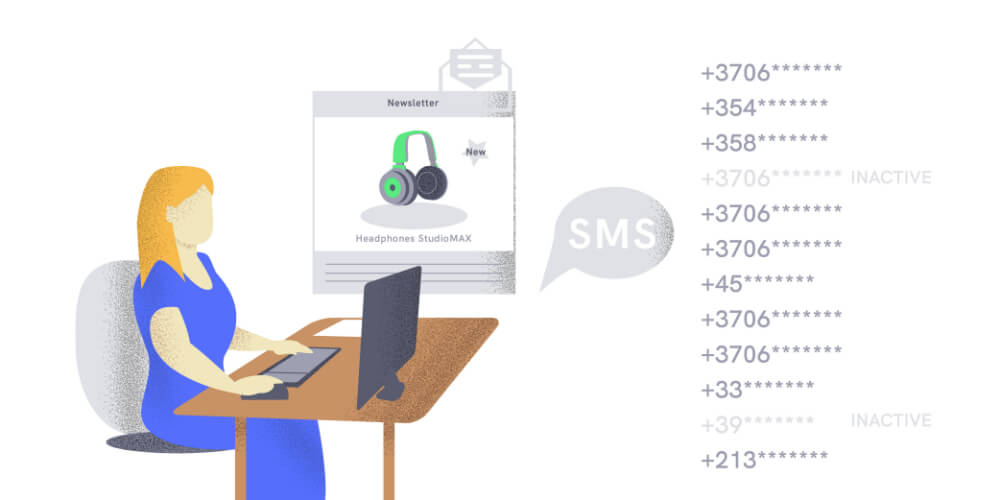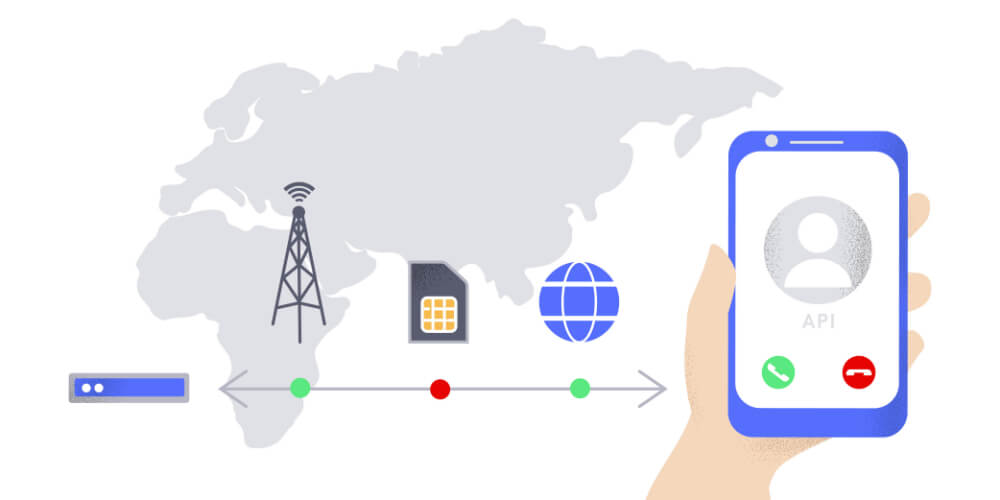What is a verification number: A Complete Overview (2024)
The significance of security in the digital world we live in, with many transactions and communications taking place online, cannot be emphasized. Verification numbers are essential for guaranteeing the security and legitimacy of a range of online operations. However, what are verification numbers exactly, and how do they function? Let's explore this subject in more detail to have a thorough grasp.

Cell phones can provide important details about the people who own them. Phone numbers can be used by organizations to identify or infer a variety of indications pertaining to risk and identification. Contact information is essential for information exchange and is part of Know Your Customer (KYC) protocols.
Every bit of the customer's data needs to be verified twice in order to maintain the greatest level of correctness. Receiving the data and calling it a day is quite reckless; it needs to be reliably validated. Phone verification thus accomplishes precisely that. It offers an extra degree of defense. And in this way, getting to know your consumer goes beyond only learning about their identity and legal status.
What is Phone Verification?

The utilization of phone verification is widespread across various industries, serving as a means to authenticate the validity and availability of provided phone numbers by clients. It also acts as an additional layer of identity verification, as seen in Google's two-step verification process when accessing an account from an unfamiliar device.
Furthermore, phone number verification plays a pivotal role in confirming ownership for several reasons:
- Assessing additional attributes associated with the phone number enables informed decision-making regarding the associated risks.
- Incorporating seamless phone verifications during customer onboarding or re-authentication processes efficiently validates phone ownership.
The significance of employing phone verification software cannot be overstated, despite its long-standing presence. For businesses reliant on client phone numbers to disseminate crucial information like newsletters and product updates, verifying the validity of these numbers is imperative. Without valid numbers, vital communications fail to reach customers, resulting in wasted time and resources.
Phone verification aids in:
- Evaluating the risk level associated with a phone number.
- Establishing ownership or connection of a phone number to a specific customer.
- Confirming the possession of the phone number by the individual during the verification process.
Moreover, verifying customer phone numbers is crucial in combating fraud. Fraudsters seldom use their genuine contact information, making validation essential. Even if a phone number appears valid, various factors help assess associated risks. Solutions like iDenfy are tailored to address these challenges comprehensively.
How Does Phone Verification Work?

The process itself is straightforward. Whenever a company requires client phone number verification, it sends a one-time password (OTP) via either SMS or a "text-to-speech" message if SMS is not feasible. The recipient then inputs the password into the designated field.
Phone verification can be customized for various purposes. For instance, a company might employ it as an extra layer of fraud prevention following an unsuccessful deep phone check, or incorporate it into a secure onboarding process.
iDenfy’s phone verification solution offers:
- Global coverage.
- Support for both mobile and landline numbers.
- Rapid generation of unique OTPs.
- Automated onboarding.
- Regulatory security compliant with two-factor authentication.
- Beyond phone number verification, the solution also adapts to risk scores. It scrutinizes multiple data points associated with the phone number to calculate a dependable risk score.
Several factors can influence the phone verification process, including:
- The phone number's creation date
- Checking for blocklist listings associated with the number
- Verifying if the area code aligns with the user's current or previous address
- Confirming recent SIM card changes to a new device
- Checking if the phone number recently switched to a different carrier
- Identifying suspicious indicators such as multiple individuals linked to the same phone number.
- Depending on a company's requirements and industry, it may opt to integrate phone verification alongside other verification methods like selfie verification or manual review for high-risk clients.
What Makes Phone Verification an Effective Tool for Better Risk Management?
Phone verification aids in determining appropriate actions and serves as a valuable tool for early detection of fraud patterns. Here's how it operates:
Through a swift API call, the number undergoes analysis, providing crucial details such as:
- Risk score (ranging from low to high)
- Country of origin
- Original network
- Current network
- Roaming status
- Roaming country (if applicable)
- Roaming network name
- Availability (reachable or not)
- Validity
- Current route
Typically, heightened risk is associated with discrepancies like a different current network from the original, active roaming, or a country of origin distinct from the client's.
Various signals influence the phone number's risk score, including:
- Creation date
- Presence on blocklists
- Recent transitions of the phone number to different devices or carriers
- Multiple individuals or accounts linked to the same number
It's essential to note that while a high risk score resulting from phone verification doesn't conclusively indicate fraud, it significantly raises the likelihood. Therefore, exercising heightened caution and diligence with such customers is crucial.
Why do Users Provide Fake Numbers During the Verification Process?
Numerous tactics exist to circumvent traditional solutions that have long been prevalent in various industries. For instance, individuals can easily obtain fake phone numbers online and utilize them instead of their authentic ones. They may also enlist the phone numbers of family or friends as substitutes. Furthermore, many websites offer temporary phone number services for receiving one-time passwords.
Moreover, users commonly attempt to input fake phone numbers during verification processes to evade excessive promotional and marketing materials, along with vouchers. Consequently, the inundation of promotional messages can often prove burdensome for customers, especially when they lack interest in purchasing a specific product.
What are the Benefits of Phone Verification?

To effectively adhere to regulations and foster heightened security and transparency in your company's interactions with customers, verifying clients' phone numbers is imperative because:
- Phone verification enhances the depth of customer understanding by augmenting existing data, offering a more comprehensive view of their identity and associated risk elements.
- Confirming the authenticity of a customer's phone number through verification not only ensures trustworthiness but also facilitates future communications, including targeted marketing efforts and timely payment reminders.
- Phone verification serves as a user-friendly authentication method, minimizing obstacles and streamlining the customer onboarding process efficiently.
Incorporating phone verification into the onboarding process benefits any business seeking to properly authenticate user identities. It proves particularly advantageous for businesses reliant on phone usage, such as delivery services, transportation services, payment platforms, or other app-based marketplaces.
Automated Tools to Pair with Phone Verification Software
Employing a dependable phone verification solution instills confidence in companies that the provided phone number truly belongs to the individual. This eradicates concerns about information not reaching its intended destination – the client's phone – thereby saving valuable time and resources for organizations.
Furthermore, the inclusion of an integrated fraud scoring tool proves invaluable for companies aiming to bolster their fraud prevention measures. In an era dominated by digital services, fraudsters exploit any security vulnerabilities within systems. Consequently, it falls upon institutions to fortify their defenses against these deceptive tactics. A prudent approach involves surpassing minimum regulatory requirements, as adhering solely to these leaves companies vulnerable to fraudulent activity.
Fortunately, companies need not develop their own phone verification products. An array of tools already exists, allowing organizations to select one that aligns with their specific needs. We believe that iDenfy's solution encompasses all essential features and more, making it an ideal choice for businesses seeking comprehensive phone verification capabilities.


